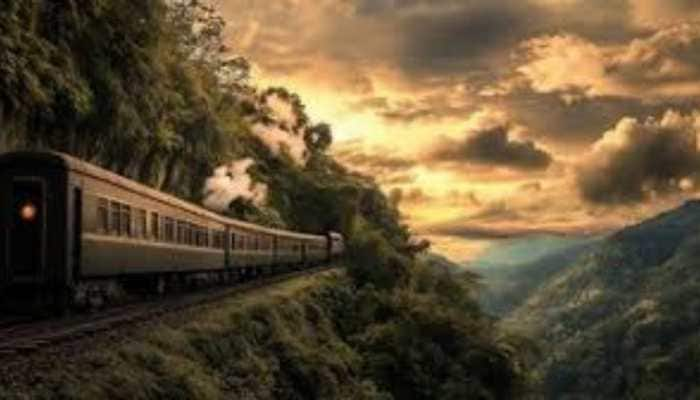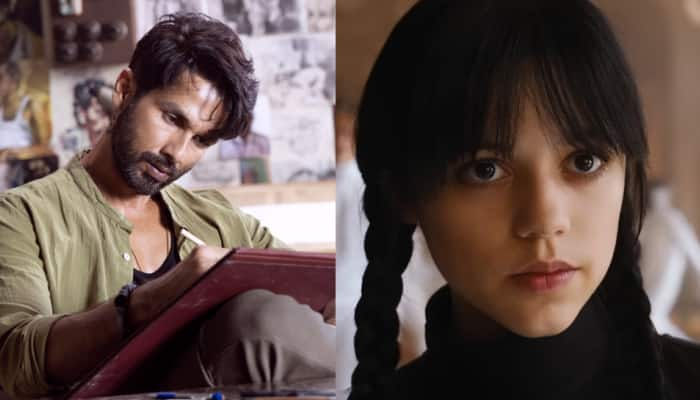`Chittagong`: A story of ordinary people`s victory
Bedabrata Pain believes in exploring new terrains of life. He quit the lucrative job of NASA scientist to try his hands in filmmaking and decided to make debut as a director with what many would have considered very unusual--a period drama on the 1930 Chittagong Uprising.
Trending Photos
)
New Delhi: Bedabrata Pain believes in exploring new terrains of life. He quit the lucrative job of NASA scientist to try his hands in filmmaking and decided to make debut as a director with what many would have considered very unusual--a period drama on the 1930 Chittagong Uprising.
His film "Chittagong", which hits the screens on October 12, is going to be an entirely different take on "one of the glorious chapters" of India`s freedom struggle, a take that goes beyond focusing on iconic heroes and drives home the point that ordinary people can script a victory, Pain told PTI in an interview.
He wanted to move away from the usual trend of most of the films on Chittagong Uprising ending in defeat and hanging of `Masterda` Sujra Sen because he believes the Chittagong Uprising is "a story of victory". That is why Pain has chosen a teenaged boy, Jhunku Roy, who took part in that uprising, to be the protagonist who achieves victory of a "reluctant hero".
Pain is unfazed by the fact that an earlier film on the Chittagong Uprising "Kheley Hain Hum Jee Jaan Sey", directed by Ashutosh Gowariker, had bombed at the box office more than a year ago even though it had the star power in the form of Abhishek Bachchan and Deepika Padukone.
The only star value of Pain`s film, shot in a West Bengal village resembling Chittagong in Bangladesh, is the presence of Manoj Bajpayee. But the director takes a lot of heart from the success of films like "Kahaani", "Paan Singh Tomar", "Gangs of Wasseypur" and "Shanghai" and thinks "Chittagong" is part of this "new wave" of films and "would stand on its own feet".
The music is composed by Shankar-Ehsaan-Loy and the lyrics are by Prasoon Joshi. Most of the songs, according to the director, are raga-based.
Following are excerpts of the e-mail interview:
Q. Why a film on Chittagong Uprising?
A. Chittagong Uprising is one of the glorious chapters of our freedom struggle. For the first time, the British were militarily defeated and were kicked out of a town in the 20th century - that too at the hands of a handful of untrained teenagers. It required the visionary thinking of Masterda Surya Sen and the daring of the teenagers to pull off this inspiring feat. Yet practically nobody knows of this stupendous achievement.
Most of our films on freedom struggle end in a defeat. I
did not want to tell a story like that. I did not want a story that emphasizes daring and sacrifice, but ultimately ends in despair. I wanted to tell a story where ordinary people - like you and me - can make a difference and can win a victory. In today`s world, when people are dissatisfied with so many things, and are trying to change the situations they find themselves in - I feel stories of success are far more relevant. I hope that my Chittagong can give everybody confidence in their daily battles.
Q. You have said the protagonist of your film is not Masterda. Do you think in that case you run the risk of distorting history? And why did you choose to focus on the teenaged boy?
A. There is no connection between distorting history and the choice of a point of view. Disinformation or distortion of history can only happen if the main achievements are left out or the significance of a movement is compromised or the roles played by the stalwarts are denied or dealt with in an underhanded manner.
I do not think any of these things have happened in Chittagong.
At the same time, I do have my issues with historians on this matter. For instance, often the impetus of the Chittagong Uprising is situated in the armed struggles in Ireland. My research shows that to be not true. First of all, it completely sidelines intense debates that happened amongst the revolutionaries of that time regarding the kind of India that they wanted and the methods to be used to achieve such goals.
My film does not end with Masterda`s death, but continues on to one such story. And this is one of the reasons why the 14-year-old boy is my protagonist. My Chittagong is a story of the victory achieved by a reluctant hero.
Of course, that is the only reason why 14-year-old Jhunku Roy is the protagonist. Honestly, the quest of a teenager makes such a compelling story. How this boy gives up his life of "safety" and becomes a revolutionary; what he has to go through; and how he emerges victorious - makes certainly a far more intriguing story. Needless to say, Masterda is the iconic hero - but my film Chittagong becomes that much more exciting - without sacrificing the spirit of the Uprising.
Q. Where was the film shot in India?
A. The film was shot in the foothills of the Himalayas in North Bengal in a place called Lataguri. A small town today has more resemblance with Chittagong of 1930s than today`s Chittagong itself. We did a very thorough location scouting, trying to find places that resemble Chittagong both geographically and climatically. Lataguri fit that bill perfectly. In fact, there is a village in Lataguri - called Chittagong-kundli - a settlement of people from Chittagong who migrated during the partition.
Q. Given the fact that Ashutosh Gowariker`s "Kheley Hain Hum Jee Jaan Sey" was a box office disaster, how jittery or hopeful are you about your movie?
A. Indian film market has changed a lot in recent times. There is a significant rise of non-traditional Bollywood films - which above all, are good films. Why, only this year, we have had successful films such as `Kahaani`, `Paan Singh Tomar`, `Gangs of Wasseypur`, `Shanghai` and others!
I strongly believe that `Chittagong` is part of this new wave. So, irrespective of what Bollywood films may or may not have been there, `Chittagong` would stand on its own feet. I am extremely hopeful about `Chittagong`, but then you know as they say - it`s after all luck by chance.
PTI
Stay informed on all the latest news, real-time breaking news updates, and follow all the important headlines in india news and world News on Zee News.
Advertisement
Live Tv
Advertisement







)
)
)
)
)
)
)
)
)
)

